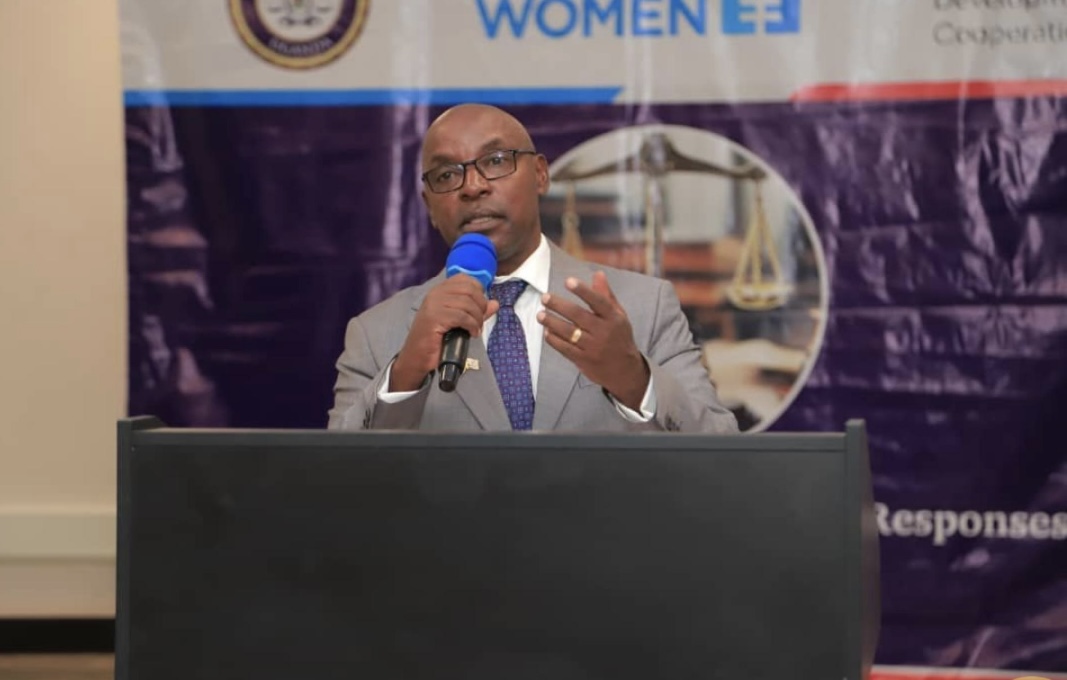Justice Dr. Flavian Zeija, the Principal Judge and Deputy Chief Justice Designate, has called on leaders in the greater Masaka sub-region to take urgent action against widespread superstitious beliefs and witchcraft, which he says are fueling sexual and gender-based violence (SGBV) cases in the area.
Speaking at the launch of the Justice4Her project at the Masaka High Court, Justice Zeija expressed concern over the high number of sexual offenses registered in the court circuit, many of which involve elements of sorcery and superstition.
The Justice4Her project, spearheaded by the Austrian Development Agency (ADA), aims to ensure full access to justice for survivors and victims of gender-based violence, particularly women and girls.
Justice Zeija noted that his experience handling sexual violence cases in the Masaka High Court Circuit has revealed a disturbing trend—many offenders are misled by witch doctors who promote harmful beliefs.
He highlighted that a significant number of SGBV cases in Masaka involve aggravated defilement and incest, underscoring the need for local leaders to implement targeted interventions to curb these crimes.
Justice Zeija also urged judicial officers to prioritize the protection of gender-based violence survivors seeking justice. He pointed out cases where survivors testify in court only to be forced back into the same households as their offenders after the latter is granted bail. He emphasized that such situations, if not handled with care, discourage victims from coming forward and complicate their recovery. He called on actors in the Justice, Law, and Order Sector (JLOS) to ensure survivors’ safety throughout the legal process. Beyond ensuring continuous trials of GBV cases, the Justice4Her project will also focus on psychosocial rehabilitation to help victims regain their self-esteem and rebuild their lives.
Masaka Senior Resident High Court Judge Lawrence Tweyanze revealed that out of 1,601 criminal cases already committed for trial, 565 involve gender-based violence, highlighting the high prevalence of such offenses in the region. Tweyanze expressed optimism that the Justice4Her project, with its focus on expediting GBV trials, would encourage more women and girls to report violations, ultimately deterring perpetrators. He pledged the Masaka High Court Circuit’s full commitment to the initiative’s success.
Dr. Katja Kershbaumer, the Austrian Ambassador to Uganda, underscored the importance of addressing gender-based violence as a key factor in sustainable development and gender equality. She urged all stakeholders to work together to eliminate GBV from society.
Meanwhile, Paulina Chiwangu, the UN Women Country Representative for Uganda, emphasized that initiatives like Justice4Her are critical to creating an effective, accountable, and gender-responsive justice system. She pointed out that 51% of women in Uganda experience physical violence, far exceeding the African average of 37.7%, with sexual violence remaining a pervasive issue. She challenged all stakeholders to acknowledge the grim realities and take decisive action against GBV.

